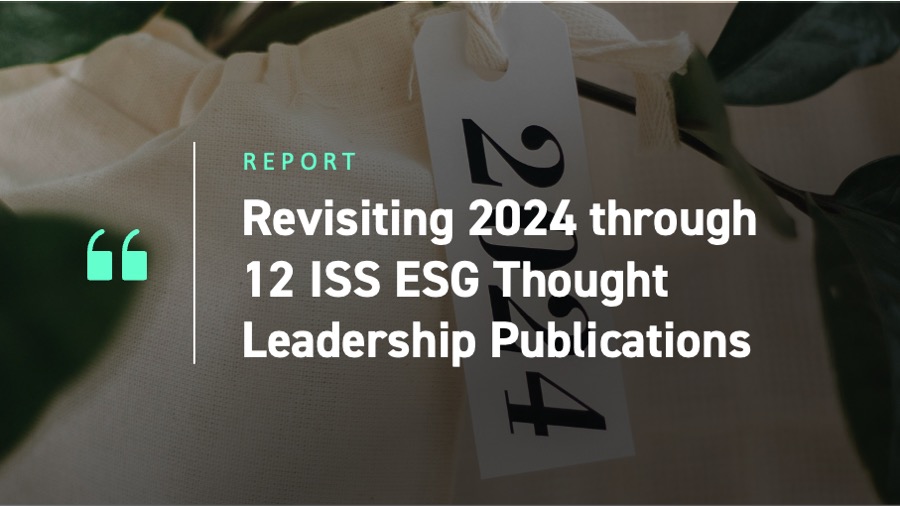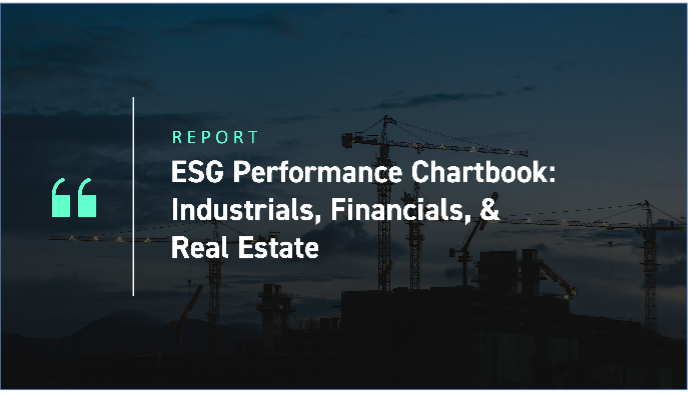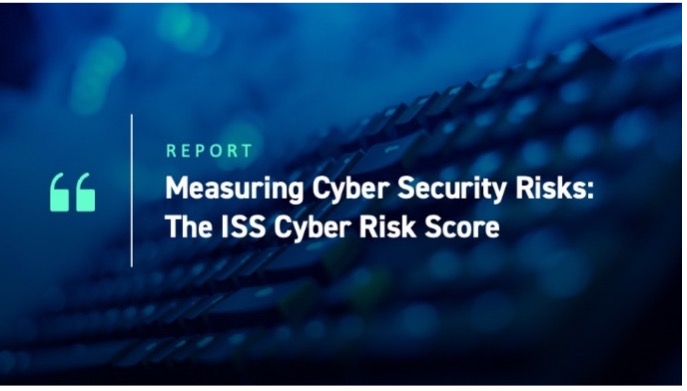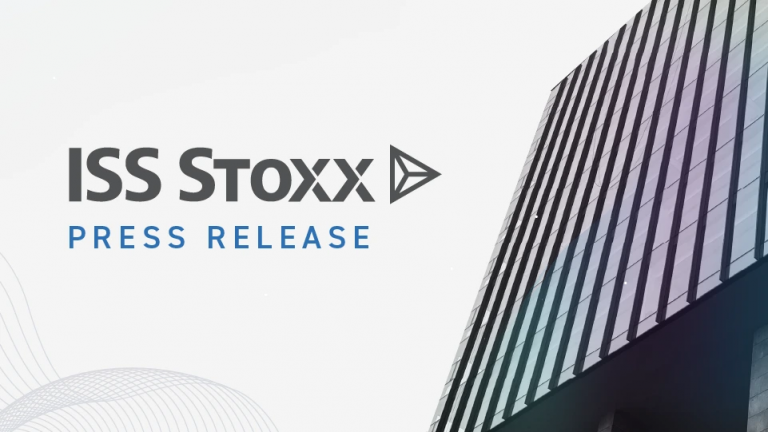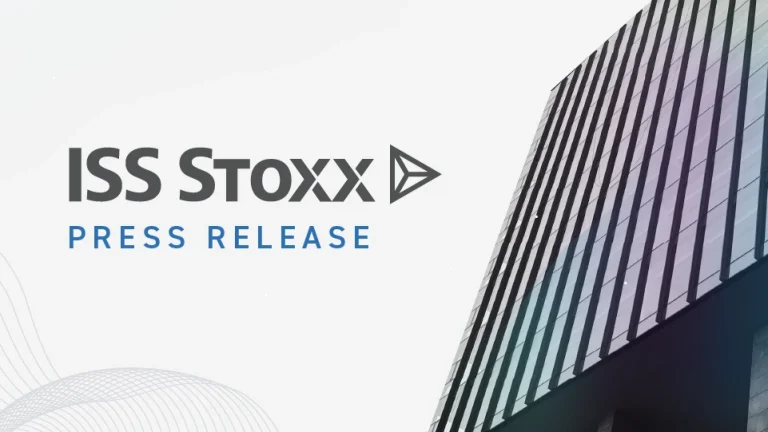In 2024, ISS ESG Research, in collaboration with colleagues across ISS STOXX, published a variety of ESG Thought Leadership publications with significant relevance for investors. The selected publications highlighted below, which range from ISS Insights blog posts to multi-chapter reports, illustrate the breadth of Thought Leadership’s coverage of current topics relevant to ESG investing.
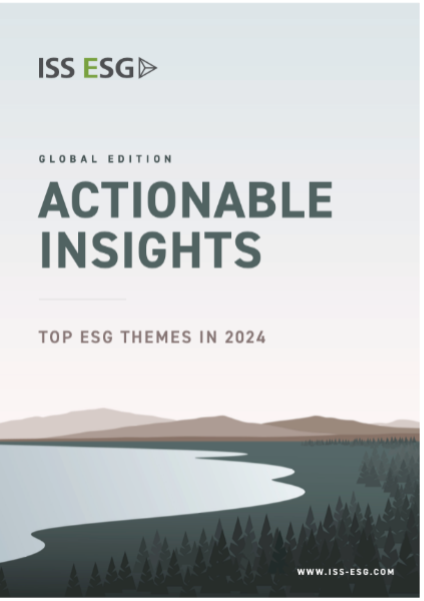
1. Actionable Insights: Top ESG Themes in 2024
January 30, 2024
The Actionable Insights report series provides a year-long resource, and roadmap, for global investors seeking to navigate the complexity of diverse global and regional ESG issues and their impact across various investment markets. The 2024 edition examined topics such as new EU regulation to ensure products on the European market are deforestation free; the opportunities and risks offered by digital health technology; the potential liability issues raised by generative AI technologies; and the ESGF, an ISS ESG rating that considers a firm’s ESG risks and opportunities along with its Financial Quality measured over time.
A Mid-Year Review released in July provided follow-up on these same topics.

2. Ready, Set, Regulation
March 26, 2024
Regulators globally are requiring companies to disclose their greenhouse gas (GHG) emissions. For most companies in the financial sector the bulk of relevant emissions are categorised as Scope 3 indirect emissions, specifically, financed emissions. The financial companies can play a role in the transition to a low-carbon economy both by reducing their financing of carbon-intensive industries and providing the capital required by sustainable alternatives. This post uses data from the ISS ESG Corporate Rating and from ISS Economic Value Added (EVA) to assess the readiness of financial companies, across different markets and regulatory jurisdictions, to meet this challenge.
Read More
The purpose of the ESG Performance Chartbook series is to provide the reader with insights into the distribution of ESG Performance Scores per industry within a sector. The charts are based on the underlying data from ISS ESG’s proprietary ratings methodology. Reviewing ratings distributions allows the reader to appreciate how similar or dissimilar discrete categories are within a particular industry. The discrete report categories focus on Environmental, Social, and Governance data and their contribution to an issuer’s overall performance score. They also illustrate the Key Issues for each industry, which reflect industry-specific materiality mapping.
Subsequent chartbooks in the series covered the Healthcare and Technology, Media, & Telecommunications industries and the Consumer and Energy, Materials, & Utilities industries.
The economy inherently depends on nature, and the functions and services it provides, to produce goods and services. Natural capital is thus a necessary consideration when assessing a company’s valuation and risk profile, similar to other types of capital in a company, such as financial and human capital. This article provides an overview of the concept and current state of natural capital, its significance for investors, and the future of natural capital data.
This article was the first Thought Leadership produced in collaboration with the Natural Capital Research Institute (NCRI). Other NCRI publications in 2024 covered the importance of oceans for investors and the implications of the COP 16 conference on biodiversity.

Advances in Artificial Intelligence (AI) may have far-reaching effects on privacy, physical safety, discrimination, and the labor economy. For investors, there may be a spectrum of risks and opportunities related to AI use among portfolio companies along dimensions such as industry and geography. This Thought Leadership collection examines different aspects of AI and its implications for investors, such as AI and discrimination, AI and privacy, AI’s impact on labor, and AI governance.
Having the tools to benchmark a company’s cyber security processes can help to identify those implementing best practices and those falling short of these benchmarks. The ISS Cyber Risk Score, which is produced by an empirically derived, machine-learning model trained on reported, material cyber incidents, is such a tool. The model is engineered to measure the likelihood that an organization will suffer a material cybersecurity event in the next 12 months. This article illustrates the average and the standard deviation of the ISS Cyber Risk Score across sectors and showcases details pertaining to the top- and bottom-performing sectors.
Read More
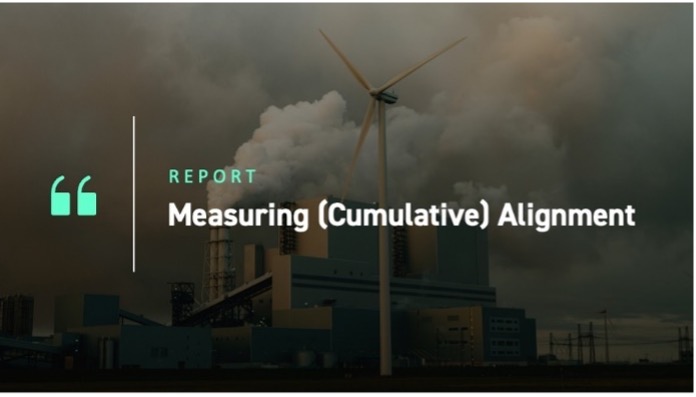
7. Measuring (Cumulative) Alignment
July 23, 2024
ISS ESG presented A Guide to Climate Scenario Analysis in October 2023. The Guide detailed principles for evaluating different emissions-reduction pathways and addressing barriers to wider adoption of climate scenario analysis. ISS ESG has since updated its Scenario Analysis product by bringing in a new set of factors. These new factors will support financial institutions in conducting effective scenario analysis and support the evaluation of public decarbonisation pathways from a range of different providers. This post examines the methodology of the updated Scenario Analysis product, so as to help investors navigate the extensive new dataset.
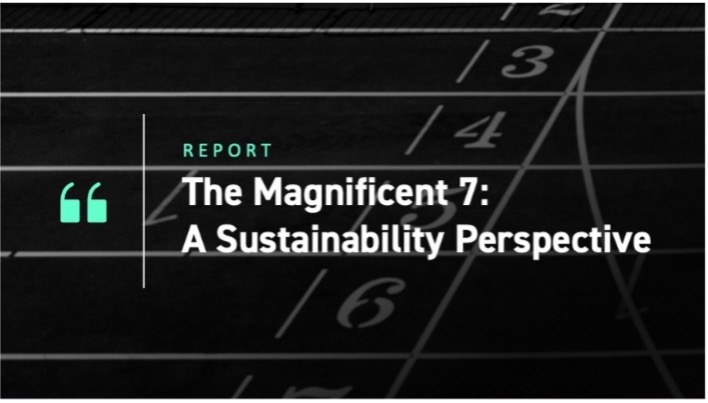
8. The Magnificent 7: A Sustainability Perspective
September 19, 2024
Reflecting their strong contribution to major indices, the so-called Magnificent 7 U.S. technology stocks have been a major focus of investor attention. This article considers the sustainability performance of the Magnificent 7 compared with the remaining equities in the STOXX USA 500. The article examines six ESG and climate metrics and considers aggregate performance as well as the dispersion in the data. The Magnificent 7’s financial strength is also reviewed using the Economic Value Added (EVA)-based ISS Financial Rating.
The same type of analysis was also applied to the outperforming European companies known as the “GRANOLAS.”

This report reviews an array of notable developments in international and national regulation that addresses ESG issues. Topics covered include the influence of the IFRS Sustainability Disclosure Standards and the EU’s European Sustainability Reporting Standards on global corporate sustainability reporting; the complex regulatory landscape investment fund managers must navigate due to policymakers’ anti-greenwashing measures; and the development of regulation in Japan and South Korea.

10. Carbon Credits: An Overview of a Climate Controversy
November 20, 2024
Companies can buy carbon credits to “offset” or “compensate” their unabated GHG emissions within their value chain. Countries can transfer carbon credits earned from the reduction or removal of GHG emissions to help one or more other countries meet their emission reduction targets. Carbon markets have been promoted as a valuable source of climate finance for developing nations but have also been a source of controversy: a crucial criticism is that a company can rely on such credits to achieve carbon neutrality without necessarily reducing emissions. This article examines how Net Zero frameworks and reporting standards treat carbon credits, common criticisms made of such credits, and the implication of credits for developing countries.
Read More

11. The Sustainability Bond Rating and the Current GSSS Market
November 25, 2024
The sustainable finance debt market is seeing strong levels of issuance, from a greater breadth of issuers, in 2024. Green bonds are experiencing strong momentum, and the uptake of transition bonds has added a new type of debt instrument to financial markets. In the context of this evolving market, ISS ESG is launching a new Sustainability Bond Rating (SBR) in the first half of 2025 that will assess the ESG performance of the underlying bonds being issued. The current offerings in the market tend to be more focused on the issuers’ ESG performance, as opposed to the issuance itself. This is an important differentiator for someone investing in the sustainable finance market.

ISS ESG supports global institutional investors with research and data that help inform investment decision making. In response to our clients’ needs, the ISS ESG Corporate Rating solution employs a proprietary methodology with a holistic materiality interpretation with appeal to institutional clients across client preferences and approaches. This article defines the views on both impact and financial materiality that underpin this methodology and that are in line with our ESG Corporate Rating Survey results.
Read More
